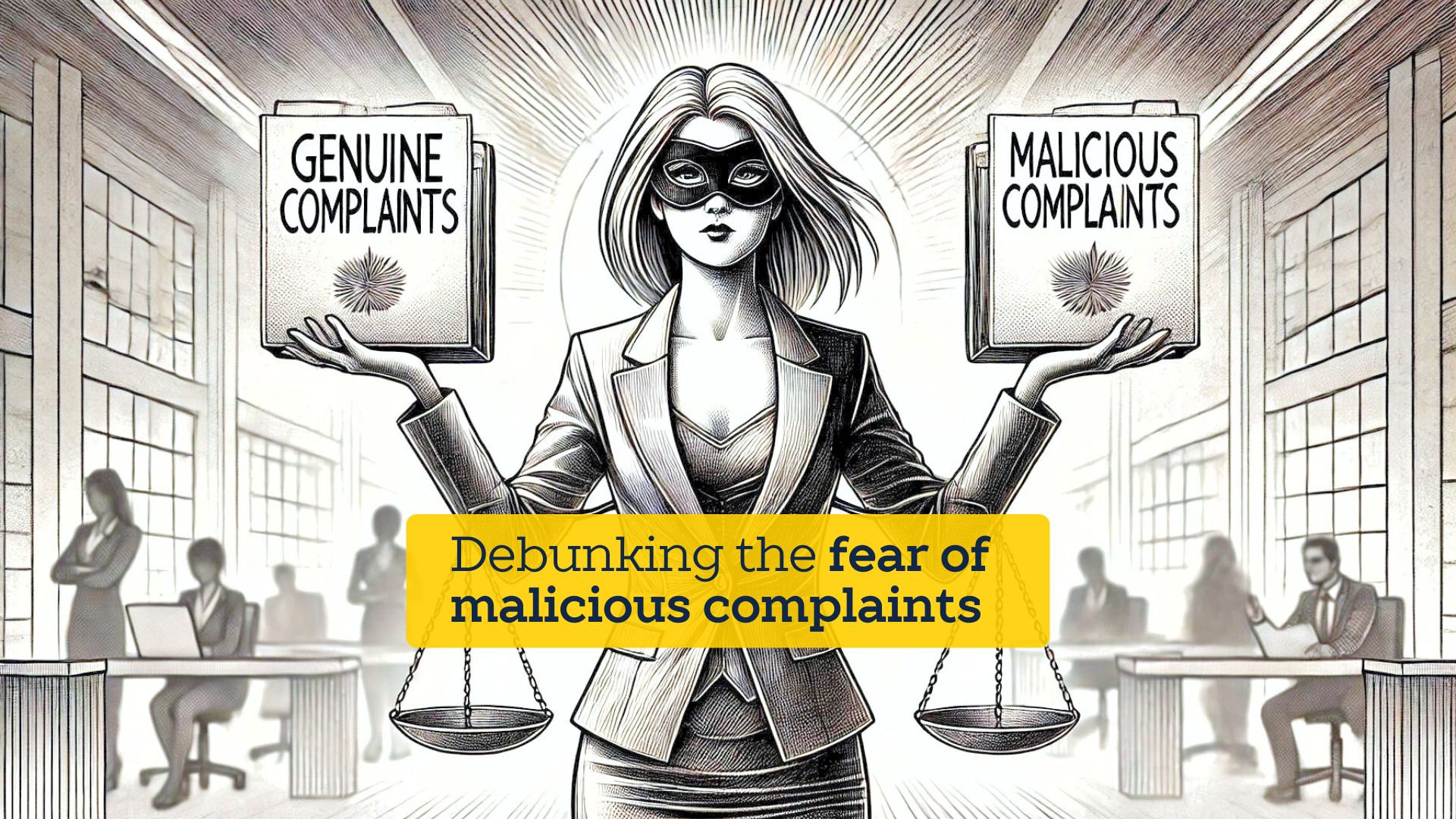Debunking the Fear: Can POSH Be Weaponized in the Workplace?
Recently, I conducted a POSH awareness session for young and first-time managers at a multinational organization. It was an engaging and interactive session, buzzing with energy and enthusiasm. However, one question repeatedly stood out—a concern that many managers seem to carry with them:
“What if someone puts a malicious complaint about me?”
This wasn’t just a fleeting question. It was a genuine fear that a lot of participants, particularly male managers, voiced during the session. There’s this perception among them that workplace pressures or conflicts could result in a POSH complaint, possibly a false one, which could damage their reputation or career. They expressed a sense of helplessness, worrying that even routine work pressures could lead to retaliation in the form of a fake POSH complaint.
It made me pause and think—are people really weaponizing POSH?
Interestingly, some senior female managers in the group had a different take. Many of them shared anecdotes about how, in the past, when there was no POSH Act, they managed such situations at their own level. One female participant even recalled an incident years ago when her manager looked at her inappropriately and made cheeky comments. She said she would respond in a light-hearted but firm tone: “What, sir? Looks like you’re checking me out!” She noted that her manager would awkwardly smile, and the behavior would never be repeated.
I agree that informal resolutions can sometimes work wonders. A simple, direct approach often nips inappropriate behavior in the bud. But, as we discussed in the session, this approach isn’t for everyone. Power dynamics and organizational hierarchies can make it difficult for some individuals to speak up. In these cases, there may be a genuine need for a formal POSH complaint.
The Fear of Malicious Complaints
Coming back to the concern of malicious complaints—yes, they do happen. Some individuals misuse POSH laws to settle personal grudges or workplace conflicts, but the number of such cases is relatively small when compared to genuine complaints. The POSH Act itself has a safeguard in place, where individuals filing false complaints face repercussions. This acts as a deterrent to misusing the law.
But let’s take a step back. As managers, we often overthink this. Just as there is a reason behind a genuine complaint, there is always a reason behind a malicious one. People don’t just wake up one morning and decide to randomly file a sexual harassment complaint. If a malicious POSH complaint happens, it’s usually driven by deeper issues.
Industry Insights on Malicious Complaints
From industry statistics and experiences in POSH trainings, two primary reasons stand out for malicious complaints:
- Poor performance issues
- Consensual relationships that go wrong
Let’s address performance issues first. This can be tricky because employees may feel cornered or vulnerable during performance reviews, potentially leading to a false POSH complaint. That’s why it’s essential for managers to stay on top of the performance management process. Keep your feedback documented, ensure it’s in writing, and escalate issues appropriately. This not only helps track performance but also serves as a defense if things take an unexpected turn. A good practice is to deliver difficult feedback in the presence of another colleague and avoid closed-door meetings whenever possible.
Now, let’s talk about consensual relationships in the workplace. Relationships involving a power dynamic are always complicated. Consent, in these situations, is often tricky—it can be challenged, contested, or even withdrawn. This is why it’s advisable to steer clear of relationships that could blur professional boundaries. In many cases, POSH complaints arise when such relationships sour, and individuals misuse the law to their advantage.
Proactive Approach to POSH Compliance
So, do you really need to fear malicious POSH complaints? The answer is no, not if you’re proactive. The key is to respect that fine line of professional boundaries. As a manager, always document critical interactions, be mindful of your behavior, and most importantly, create a respectful work environment where there is no room for misunderstanding.
Remember, POSH compliance isn’t just about protecting yourself from complaints—it’s about fostering a safe, inclusive workplace for everyone. By being aware of the nuances of POSH laws and applying them effectively, you can manage your team confidently without the constant fear of a false complaint looming over your head.
The fear of malicious complaints shouldn’t deter you from doing your job. Equip yourself with the right knowledge through POSH trainings, document interactions, and be respectful of boundaries. In the rare event of a malicious complaint, you’ll be prepared to handle it professionally and with integrity.

Demystifying the Supreme Court’s POSH Act 2013 Directives
The Supreme Court of India has recently issued crucial directives concerning the Prevention of Sexual Harassment (POSH) Act 2013, providing directions for organizations and professionals alike. To help you unlock the full potential of these directives, we’ve created an easily understandable and accessible document that breaks down complex legal jargon into clear, actionable steps.






